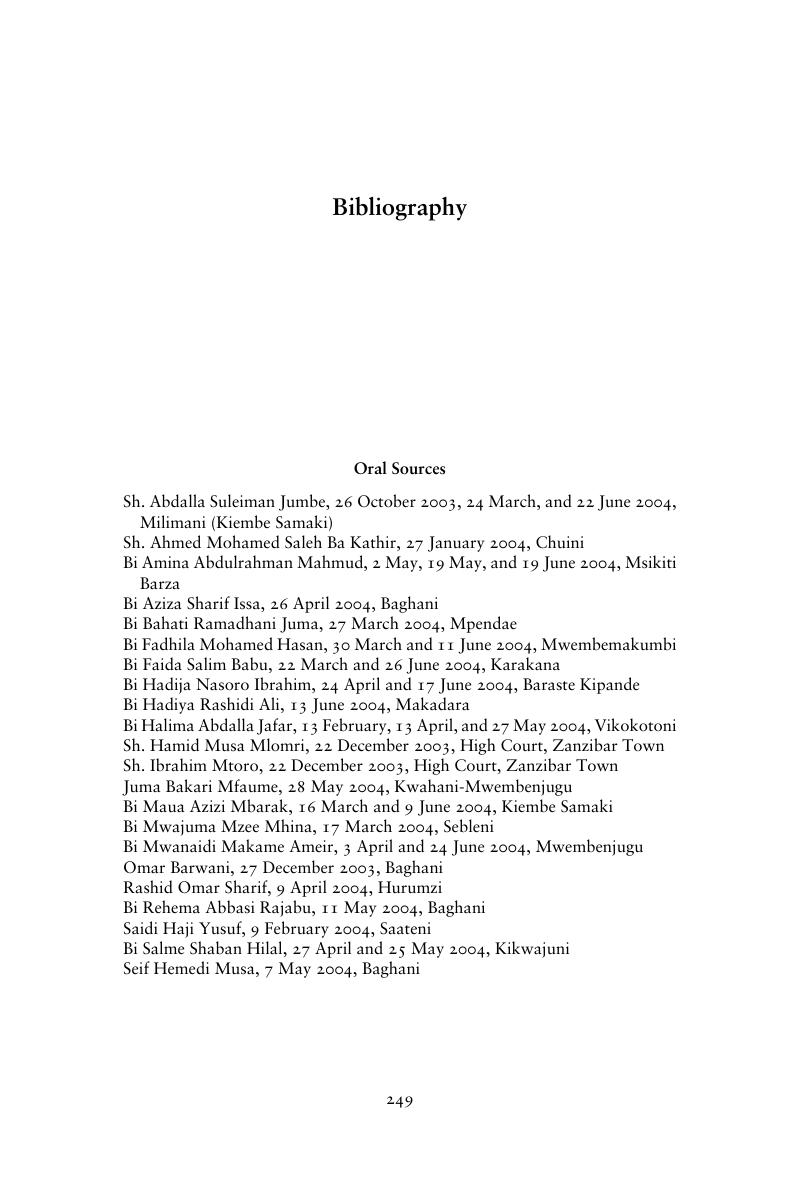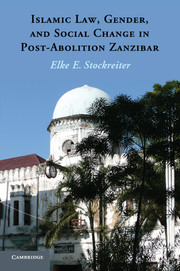Book contents
- Islamic Law, Gender, and Social Change in Post-Abolition Zanzibar
- Dedication
- Islamic Law, Gender, and Social Change in Post-Abolition Zanzibar
- Copyright page
- Contents
- List of Figures and Tables
- Preface
- Glossary
- Frontispiece
- Introduction
- Part I
- Part II
- Part III
- Conclusion
- Book part
- Bibliography
- Index
- References
Bibliography
Published online by Cambridge University Press: 05 March 2015
- Islamic Law, Gender, and Social Change in Post-Abolition Zanzibar
- Dedication
- Islamic Law, Gender, and Social Change in Post-Abolition Zanzibar
- Copyright page
- Contents
- List of Figures and Tables
- Preface
- Glossary
- Frontispiece
- Introduction
- Part I
- Part II
- Part III
- Conclusion
- Book part
- Bibliography
- Index
- References
Summary

- Type
- Chapter
- Information
- Islamic Law, Gender and Social Change in Post-Abolition Zanzibar , pp. 249 - 268Publisher: Cambridge University PressPrint publication year: 2015



